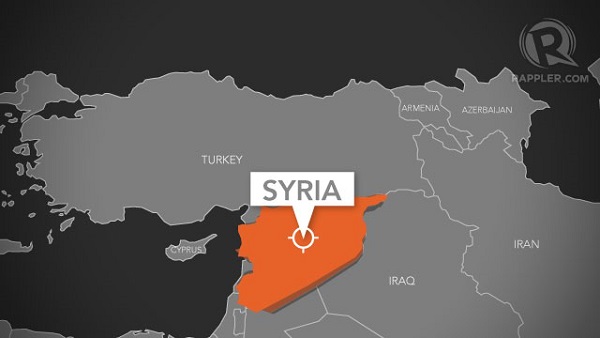SUMMARY
This is AI generated summarization, which may have errors. For context, always refer to the full article.

HONG KONG – Asian markets were mostly lower Tuesday, August 27, as fears of military intervention in Syria added to concerns over when the US Federal Reserve would taper a massive stimulus program.
US Secretary of State John Kerry warned Syria it would face action over the “moral obscenity” of a chemical weapons attack, as expectations grow that Washington and its allies are preparing to launch a punitive missile strike.
Tokyo ended down 0.69% and Seoul closed 0.11% lower. But Sydney gained 0.11% on profit-taking, following early losses after some poor earnings reports — including a mammoth loss of $770 million for Billabong.
Hong Kong closed down 0.59% while Shanghai was up 0.34%.
Shares in PetroChina, China’s largest oil company by capacity, were suspended in Hong Kong and Shanghai pending an announcement related to unspecified “major events”.
“Longer-term investors see a whole host of broader political and macroeconomic factors — including rising tensions over Syria, US Fed tapering worries, German elections, Greek bailout chatter — as too powerful to encourage meaningful investment in equities at the moment,” said an equity trading director at a foreign brokerage in Japan.
Oil prices rose over fears of renewed instability in the Middle East. New York’s main contract, West Texas Intermediate for delivery in October, was up 30 cents to $106.22 a barrel in afternoon trade. Brent North Sea crude for October added 32 cents to $111.05.
“Syria is politically quite close with Iran, so investors will worry that an international conflict in Syria could at some point destabilize world oil supplies,” said Shane Oliver, chief economist at AMP Capital in Sydney.
India led a tumble among currencies in emerging markets, with the rupee sinking to a new record low of 66.09 to the dollar, before recovering slightly to 65.91 against 64.14 Monday afternoon.
The Indonesian rupiah edged down to 10,840 from 10,770 while the Philippine peso also touched a 30-month low of 44.45 to the US unit.
The rupee’s slide came as India’s finance minister insisted the government could afford a vast new food program for the poor designed to “wipe out” malnutrition, despite concern about its impact on the public finances.
The dollar was at 97.97 yen in afternoon trade, down from 98.51 yen in New York on Monday afternoon.
The euro bought $1.3337 and 130.68 yen compared with $1.3369 and 131.68 yen.
“The possibility of US military attacks could make investors risk-averse, weighing on the dollar,” a dealer at a Japanese bank told Dow Jones Newswires.
The fears of military action come as expectations of an end to the US stimulus program have seen investors in recent months repatriate some of the vast sums that have poured into emerging economies, hitting currencies and equities.
Some speculate the US central bank will announce the start of its tapering of the bond-buying program at the September 17-18 meeting of the policy-setting Federal Open Market Committee.
The price of gold rose to a near 3-month high of $1,410.10 at 0845 GMT Tuesday, up from $1,394.40 late Monday.
In other markets:
— Taipei fell 0.94%, or 74.13 points to 7,820.84.
Hon Hai fell 1.6% to Tw$80.0 while TSMC was 1.24% lower at Tw$95.6.
— Wellington edged down 3.64 points or 0.08% to 4,542.03.
Ryman Healthcare was off 0.59% at NZ$6.79 and Trade Me slipped 1.56%.
— Manila sank 3.96% or 244.22 points to 5,916.99.
SM Investments fell 6.16% to P685, while Metropolitan Bank and Trust lost 1.91% to P102.90.
– Rappler.com
Add a comment
How does this make you feel?
There are no comments yet. Add your comment to start the conversation.